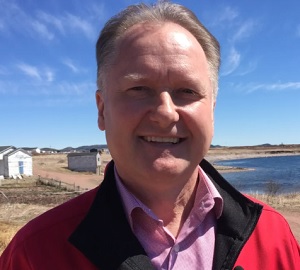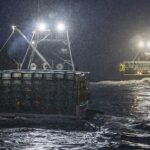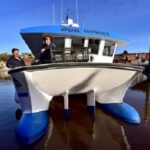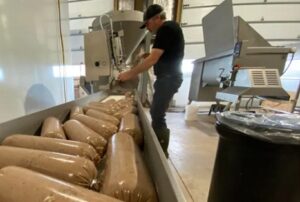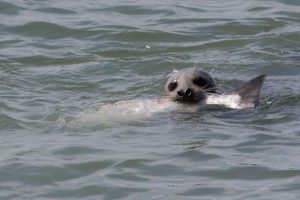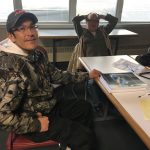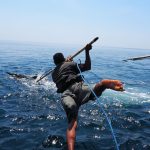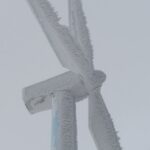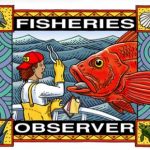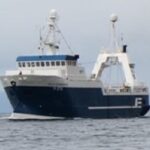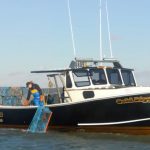Tag Archives: Greenland
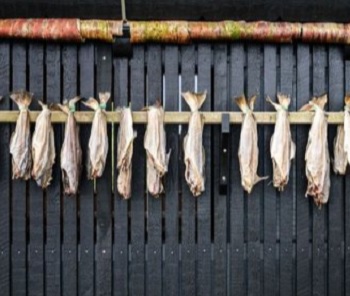
A fish that sparked a national obsession
Bacalhau (salt cod) is a deep part of Portugal’s culinary identity. But for a fish that is found only in the icy depths of the North Atlantic Ocean, far from Portugal’s shores, the country’s love affair with salt cod is a puzzling one. How exactly did it end up on Portuguese plates? The answer is wrapped up in more than 500 years of intriguing history. In the mid-1500s, during Portugal’s maritime explorations and hunt to find the coast of India, they stumbled across waters rich with cod around Canada and Greenland; a major discovery that kickstarted Portuguese cod fishing. But by the 16th Century, Portuguese fishermen were pushed out by the French and English. >click to read< 18:14
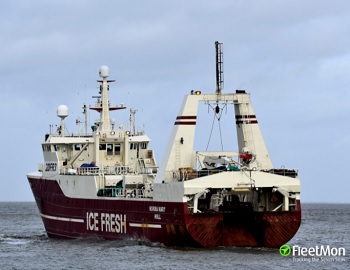
Hull trawler sold to Greenlandic fishing interests as owners blame Government ‘failure’ in post-Brexit negotiations
The Icelandic owners of Norma Mary have sold the 32-year-old trawler, mainly crewed by fishermen from Hull and Grimsby, to Greenlandic fishing interests, blaming “the Government’s failure to negotiate fishing opportunities”. News of the sale emerged as Hull West and Hessle MP Emma Hardy told the Commons on Thursday that the country had been promised a “‘sea of opportunity’” that turned out to be no more than a stagnant millpond”.>click to read< 08:07
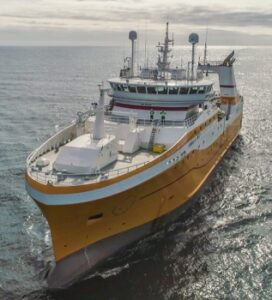
UK Fisheries call for tariffs on Norway, Greenland and Iceland to compensate for access loss of their waters
Despite two years of campaigning to save the UK’s distant-waters fishing industry, UK Fisheries Ltd’s state-of-the-art vessel Kirkella (pictured), a cod and haddock freezer trawler and part of the UK’s distant waters fishing fleet, is once again tied up in Hull. UK Fisheries still have no access to the Norwegian coastal waters where our crews should be working right now. >click to read< 07:13
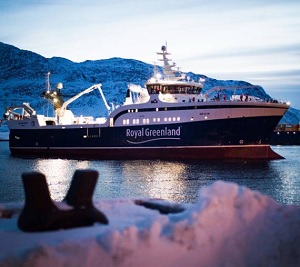
A terrible deal for the fishery
Sometime in the past few weeks, the minister of Fisheries, Forestry and Agriculture signed off on the transfer of the processing licenses owned by Quinlan Brothers to Royal Greenland. Royal Greenland is now the largest, most dominant fish processing company in this province. The purchase of Quinlan Brothers by Royal Greenland and its subsequent approval by the provincial government was completed with little debate and almost no context. The inshore fishery in this province is extremely valuable. In 2019, the total value was approximately $1 billion, with about half going to the inshore fish harvesters. This is new money into our economy, largely into rural communities, and created with little to no provincial government support. The total value of the fishery is approximately $1 billion per year. Royal Greenland is one of the largest seafood companies in the world. But it has just one shareholder — the Government of Greenland. >click to read< 17:01
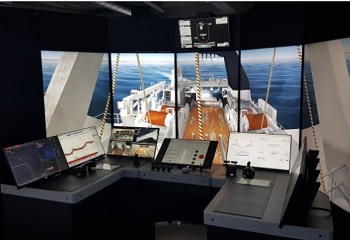
Fishing companies donate millions to new Kongsberg Digital fishery simulator in Greenland
Nine commercial fishery companies have donated in total DKK 3.2 million to Danish training institute, the Greenland Maritime Center, for investment in a state-of-the-art K-Sim Fishery simulator from Kongsberg Digital. A first of its kind in the Kingdom of Denmark, the K-Sim Fishery simulator will enable students to gain vital competence in diverse fishery situations, including aft deck operations, and is scheduled for installation in 2020. >click to read< 14:30
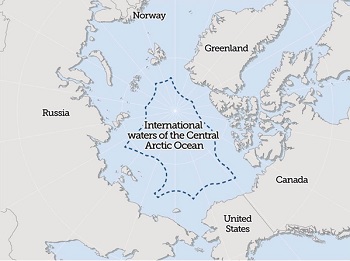
U.S. ratifies The Agreement to Prevent Unregulated High Seas Fisheries in the Central Arctic Ocean
The United States has become the fourth jurisdiction after Canada, the European Union and Russia to ratify a landmark international agreement that aims to prevent unregulated commercial fishery in the high seas of the Central Arctic Ocean, officials at the State Department announced Tuesday. The Agreement to Prevent Unregulated High Seas Fisheries in the Central Arctic Ocean, which was signed in Ilulissat, Greenland last October, includes the so-called Arctic Five – Canada, Norway, Russia, Denmark (Greenland and the Faroe Islands), the U.S. – as well as the major fishing nations – Iceland, Japan, South Korea, China and the EU. >click to read< 17:56
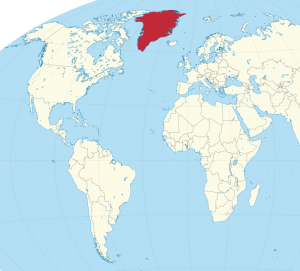
Greenland, the new US Alaska? Trump mocked, as Some Canadians Say “We Should Outbid Him!”
Greenland, the new US Alaska? – The United States’ interest in Greenland is not new. In 1867, secretary of state William Seward, then of the Andrew Johnson administration, showed interest in purchasing Greenland and Iceland from Denmark. >click to read< Trump Wants to Buy Greenland? We Should Outbid Him! – from the article, What would we get if we did obtain Greenland? It would certainly complete our set of Arctic islands. We would possess over two million square kilometres of land, almost all of it covered by an ice sheet with a volume of 2.8 million cubic kilometres. >click to read< 15:40
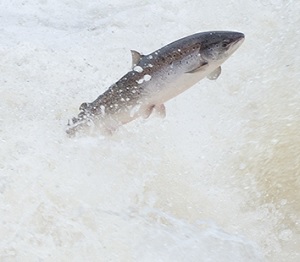
Conservation deal halts commercial salmon fishing in Greenland for 12 years
A deal has been reached that will halt commercial salmon fishing in Greenland and the Faroe Islands for the next 12 years to allow adult wild Atlantic salmon to return to rivers in Canada, the United States, and Europe. The coastal waters of Greenland and the Faroe Islands are critical feeding grounds for the salmon, and many come from endangered populations in rivers like the Saint John in New Brunswick and the Penobscot in Maine. “Significantly reducing the harvest of wild Atlantic salmon on their ocean feeding grounds is meaningful and decisive,” said Bill Taylor, president of the Atlantic Salmon Federation. >click to read<
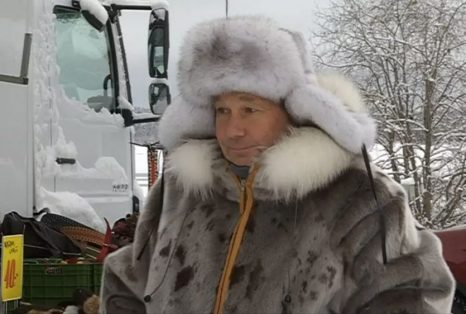
The trade ban stays despite the growing seal populations – Only sealskin from Greenland can be traded in Finland.
The warm sealskin products are easy to sell in the cold conditions of the Arctic. The material would also be available in Finland, but, because of an EU ban against seal trade, only sealskin from Greenland can be traded. As winter embraces the north and cold spells hit the region, vendor Pekka Halonen starts his mobile shop and sets off to travel around Sápmi, the Land of the Sámi, in Finland and Norway. In 2009, the European Parliament decided that seal products could not be sold in or imported for sale into the European Union. click here to read the story 11:25
In the Atlantic salmon fight, Greenland proves a sticking point
 Preventing the long-imperiled Atlantic salmon from disappearing from American waters will require the U.S. to put pressure on Inuit fishermen in Greenland to stop harvesting a fish that has fed them for hundreds of years, federal officials say. The salmon were once found from Long Island Sound to Canada, but their population has cratered in the face of river damming, warming ocean waters, competition for food with non-native fish and, officials say, continued Greenlandic fishing. Now, federal officials have outlined an ambitious plan to try to save the Atlantic salmon that they say will require removing dams, creating fish passages and fostering cooperation from Inuit fishermen some 2,000 miles away from Maine, Read the rest here 13:17
Preventing the long-imperiled Atlantic salmon from disappearing from American waters will require the U.S. to put pressure on Inuit fishermen in Greenland to stop harvesting a fish that has fed them for hundreds of years, federal officials say. The salmon were once found from Long Island Sound to Canada, but their population has cratered in the face of river damming, warming ocean waters, competition for food with non-native fish and, officials say, continued Greenlandic fishing. Now, federal officials have outlined an ambitious plan to try to save the Atlantic salmon that they say will require removing dams, creating fish passages and fostering cooperation from Inuit fishermen some 2,000 miles away from Maine, Read the rest here 13:17
Greenland salmon quota worries Maine conservationists
 At a recent summit, Greenland awarded itself an annual salmon quota of 45 metric tons for the next three years. Officials there say the new quota is considerably less than the previous harvest of 57 tons, and that reducing it further would have devastating economic consequences for fishing communities around the huge, sparsely populated island. But some U.S. officials believe the salmon quota should be zero. Read the rest here 07:35
At a recent summit, Greenland awarded itself an annual salmon quota of 45 metric tons for the next three years. Officials there say the new quota is considerably less than the previous harvest of 57 tons, and that reducing it further would have devastating economic consequences for fishing communities around the huge, sparsely populated island. But some U.S. officials believe the salmon quota should be zero. Read the rest here 07:35
Atlantic Salmon Federation calling on Greenland to end commercial fishery of Atlantic salmon
Fishermen and conservationists are urging Greenland to end its commercial fishery of  , arguing the stock is at historic lows and won’t recover if the harvest continues. It says that even though the population has been steadily declining over the last several years, Greenland has maintained its factory fishery of salmon that migrate north from river systems in Canada, the United States and elsewhere. The group released the figures ahead of a critical meeting next week in Labrador,,, Read the rest here 14:55
, arguing the stock is at historic lows and won’t recover if the harvest continues. It says that even though the population has been steadily declining over the last several years, Greenland has maintained its factory fishery of salmon that migrate north from river systems in Canada, the United States and elsewhere. The group released the figures ahead of a critical meeting next week in Labrador,,, Read the rest here 14:55
The Future of Fishing in the Central Arctic
 Increasingly, it’s the future of fisheries that is taking center stage in the geopolitical discussions that come with planning for the future Arctic. This was made evident on January 15 and 16, 2015, when 40 Arctic experts from the United States, Canada, Russia, China, Iceland, Denmark, and Greenland travelled to Tongji University in Shanghai to attend the first “Roundtable on Central Arctic Ocean Fisheries Issues.” Read the rest here 18:21
Increasingly, it’s the future of fisheries that is taking center stage in the geopolitical discussions that come with planning for the future Arctic. This was made evident on January 15 and 16, 2015, when 40 Arctic experts from the United States, Canada, Russia, China, Iceland, Denmark, and Greenland travelled to Tongji University in Shanghai to attend the first “Roundtable on Central Arctic Ocean Fisheries Issues.” Read the rest here 18:21
European Commission proposes fishing opportunities in the Atlantic and North Sea for 2015
 The European Commission has today proposed fishing opportunities for 2015 for the Atlantic and the North Sea. This is the annual proposal for the amount of fish which can be caught by EU fishermen from the main commercial fish stocks next year and it is for the first time based on the new Common Fisheries Policy (CFP). Read the rest here 11:31
The European Commission has today proposed fishing opportunities for 2015 for the Atlantic and the North Sea. This is the annual proposal for the amount of fish which can be caught by EU fishermen from the main commercial fish stocks next year and it is for the first time based on the new Common Fisheries Policy (CFP). Read the rest here 11:31
Endangered Atlantic Salmon Are Facing A New And Potentially Devastating Threat
 The Atlantic salmon, already an endangered species in the United States and in parts of Canada, is facing a new threat: A recent breakdown in an international agreement with Greenland may mean that tens of thousands of Atlantic salmon—which otherwise would have been protected—will be harvested at sea before they can return to North American rivers to spawn. Clearly the U.S. and Canada should step up and protect their endangered Atlantic salmon by doing what needs to be done to enforce this multinational treaty. [email protected]
The Atlantic salmon, already an endangered species in the United States and in parts of Canada, is facing a new threat: A recent breakdown in an international agreement with Greenland may mean that tens of thousands of Atlantic salmon—which otherwise would have been protected—will be harvested at sea before they can return to North American rivers to spawn. Clearly the U.S. and Canada should step up and protect their endangered Atlantic salmon by doing what needs to be done to enforce this multinational treaty. [email protected]






